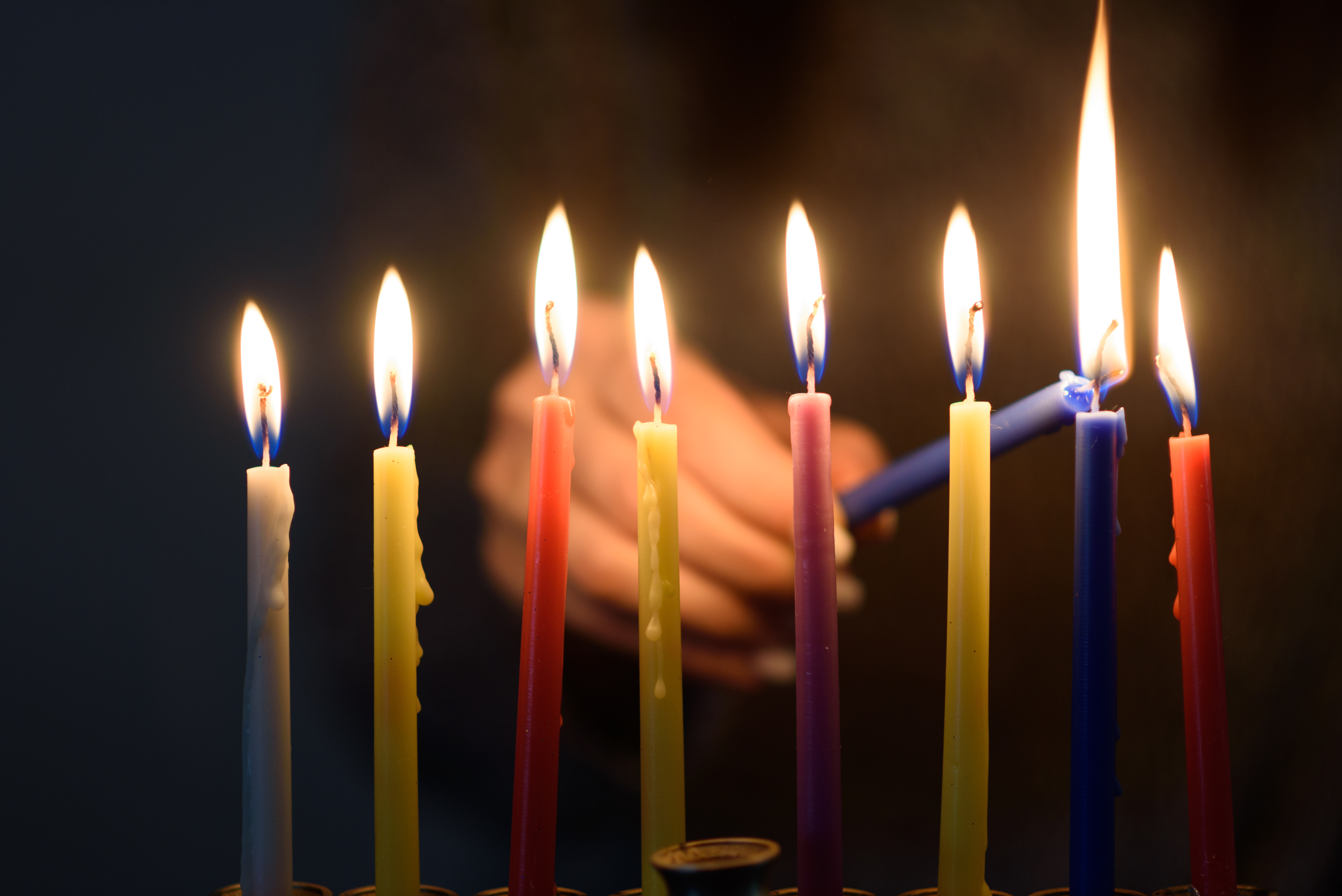As children, we learn that the miracle of Hanukkah is that a little bit of oil that should have powered the menorah for only one day instead lasted for a full 8 days. As adults, the story gets a bit more complicated when we learn that the miracle in question was that the small Maccabean army beat the mighty Greeks. While a military victory is certainly still worth celebrating, the cold realities of war take away from the mystical sense of wonder and amazement the story capture when it was about light.
This year, lets re-capture that mystical wonderment. Let’s think about how to bring light in our lives for a full eight days. For many of us, achieving this will be a small miracle in itself.
1. Take 5 minutes each night to sit silently to meditate or pray. This could be done sitting next to the Hanukkah candles. Meditation and prayer work differently for different people. Some enjoy the quiet and solace found when emptying the mind while concentrating just on the breath entering and exiting the body. Some prefer to focus their thoughts and energy on prayers of petition or thankfulness. Both can release stress and build up your internal light. What can either of these methods do for you?
2. Identify something you enjoy doing: reading a book, spending time with a friend, a hobby, and make time over the next eight days to do this. Reflect on how this lightens your mood.
3. Think of one way you can do something to help someone other than yourself, and then do it. You will be amazed at how this simple act of spreading goodness and light makes you feel.
4. Think of someone who has done something nice for you in the past year and write them a note of thanks. Acknowledging and savoring good events makes them even sweeter. By sending a thank you note you will be savoring the event for yourself and bringing light to another.
5. Can you identify a miracle in your life? It could be large or small. Sometimes even the smallest things are the most miraculous. Do you think God played a role? How would you tell someone the story of your miracle?
6. Challenge yourself to do something new or creative: cook a new dish, draw, run a mile. When it is dark, dreary and cold it is so easy to get stuck in a rut. The Hanukkah lights can help you literally see yourself doing something new. Then by doing something new and creative you will be giving yourself new energy and adding to the light. You can create your own miracle!
7. Literally increase the light in your life. God’s first act in the Bible is to create light. By doing so God begins to create the world. Everything begins with this one act. You can continue this act of creation! Create more light in your home or work space. Replace burned out bulbs, add a lamp or light box. Just a little extra light can lift your mood. There is a reason adding light is so much a part of winter holidays.
8. Light the Hanukkah candles and then spend a few minutes watching them burn. Simply enjoy their warmth and flickering. Live in the moment.
Most of us do not consciously take time to think about how to add light to our lives. The hustle and bustle of our modern holiday season is meant to bring joy, yet sometime brings just the opposite. Holidays can be stressful affairs. Bring the miracle of Hanukkah in to your life by taking time out from all the fuss to focus on what is good and positive for you in your life. Give yourself the gift of light.
May you go from darkness to light.
May you feel the warmth and love you have in your life.
May you enter the New Year refreshed and re-energized, ready to share your light with others!
Happy Holidays!


